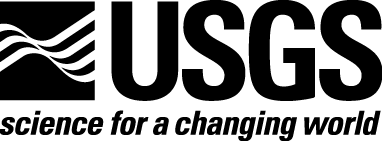Upper Midwest Water Science Center
News
Browse or search the repository below for Upper Midwest Water Science Center news, announcements, events, project updates, and more.
USGS Unveils Mobile Flood Tool for the Nation
The U.S. Geological Survey announced Friday the completion of a new mobile tool that provides real-time information on water levels, weather and flood forecasts all in one place on a computer, smartphone or other mobile device.
USGS Crews Measure Major Flooding in Lower Michigan
U.S. Geological Survey field crews are measuring record flooding on the Tittabawassee River in Midland, Michigan, following a heavy rainfall event.
USGS Responds to Spring Flooding
U.S. Geological Survey field crews are measuring flooding across the country as spring weather is in full swing. Warming temperatures, increased precipitation and snowmelt have caused moderate to major flooding in the upper Midwest, East Coast, Central Plains and the Southeast portions of the country.
USGS Scientists Presenting at the 30th Annual Idaho Water Quality Workshop
The Idaho Department of Environmental Quality hosts its 30th Annual Idaho Water Quality Workshop, February 11-13, at Boise State University.
Human Bacteria, Viruses from Sewage Found in Some Milwaukee Streams
Two types of human-associated bacteria and three types of human viruses were detected in Milwaukee streams within the Menomonee River watershed, according to a recent study led by the U.S. Geological Survey.
Design of Private Wells Can Lead to Safer Drinking Water in Minnesota
Minnesota well drillers and landowners will now have new tools to help predict arsenic concentrations in drinking water when building domestic water wells, according to a recent U.S. Geological Survey study.
USGS Flood Experts Respond to High Water in Central, Northeastern U.S.
Crews from the U.S. Geological Survey have been in the field for weeks measuring flooding in the Midwest and in the Mississippi River watershed, and more recently flooding and storm tides on the Northern Atlantic coast, as higher temperatures, heavy rain, snowmelt and nor’easters affected numerous states.
Not All Arsenic Tests are Created Equal
The reliability of arsenic testing for drinking water in Minnesota depends on how and when well water samples are collected, according to a new U.S. Geological Survey and the Minnesota Department of Health study, which highlights ways to improve the accuracy of arsenic tests for private wells.
Water-Quality Monitoring Program Aids Restoration of Great Lakes
A new water-quality monitoring program, established by the U.S. Geological Survey, can provide scientists and managers with the best available data to help evaluate the health of Great Lakes ecosystems and improve water quality for recreation and commercial fishing.
Groundwater Pumping, Precipitation Can Affect Lake Levels in Twin Cities
Both precipitation and groundwater withdrawals, among other factors, influence lake-water levels in the northeast Twin Cities metropolitan area, and the extent of these changes vary among lakes, according to a new U.S. Geological Survey study.
Western Lake Erie Tributary-Water Monitoring Summary
The U.S. Geological Survey in cooperation with Ohio Department of Natural Resources, Ohio Environmental Protection Agency, and the Great Lakes Restoration Initiative is measuring streamflow and collecting nutrient and sediment samples at stream gages in the Western Lake Erie Basin in Northwest Ohio.
New Real-Time Streamgage, Reservoir, and Precipitation Sites
The United States Geological Survey (USGS) operates a network of real-time streamgages that continually record stage and streamflow every 15 to 60 minutes.













